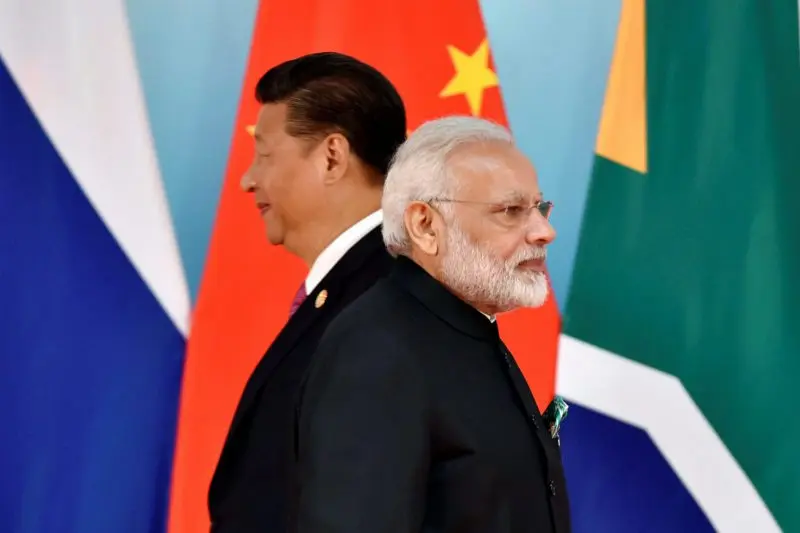The recent BRICS summit in Kazan marked a significant turning point in India-China relations. For the first time since the deadly border clashes in 2020, Indian Prime Minister Narendra Modi and Chinese President Xi Jinping engaged in formal discussions, signaling a potential thaw in the historically tense relationship between the two Asian giants.
Historical Context
India and China share a long and complex history, marred by territorial disputes and military confrontations. The most notable conflict occurred in 1962, resulting in a brief but intense war that left deep scars on bilateral relations. The border dispute, primarily centered around the Line of Actual Control (LAC), has been a persistent source of tension. The Galwan Valley clash in 2020, which resulted in the deaths of 20 Indian soldiers and four Chinese troops, brought relations to a new low.
The BRICS Summit Breakthrough
The BRICS summit in Kazan provided a platform for Modi and Xi to address these longstanding issues. Both leaders expressed a commitment to de-escalate tensions and resume dialogue. They agreed to set an early date for a meeting between their top officials to resolve border issues and pledged to restore normalcy along the LAC.
This meeting followed a series of lower-level engagements, including discussions between Indian Foreign Minister S. Jaishankar and his Chinese counterpart Wang Yi. These talks had already laid the groundwork for the leaders’ meeting by addressing 75% of the disengagement issues along the border.
Implications for Regional Stability
The thaw in India-China relations has significant implications for regional stability. Both countries are major players in Asia, and their relationship influences the broader geopolitical landscape. A stable and cooperative relationship between India and China could lead to a more peaceful and prosperous region.
Reduced Military Tensions: The agreement to resume border patrols and disengage troops from contentious areas reduces the immediate risk of military confrontations. This move is crucial for maintaining peace along the LAC and preventing incidents that could escalate into larger conflicts.
Economic Cooperation: Improved political relations could pave the way for enhanced economic cooperation. China is one of India’s largest trading partners, and easing tensions could facilitate trade and investment. Indian businesses, particularly in high-end manufacturing sectors like chipmaking, have been advocating for a relaxation of restrictions on Chinese investments.
Multilateral Collaboration: Both India and China are key members of various international forums, including BRICS and the Shanghai Cooperation Organisation (SCO). A cooperative relationship could strengthen these multilateral institutions and promote collective efforts to address global challenges such as climate change, economic inequality, and regional security.
Challenges Ahead
Despite the positive developments, several challenges remain. The border dispute is far from resolved, and mutual distrust lingers. Both countries will need to navigate these issues carefully to avoid setbacks.
Sustaining Dialogue: Continuous and effective communication between India and China is essential to sustain the momentum gained at the BRICS summit. Regular high-level meetings and confidence-building measures will be crucial.
Managing Geopolitical Rivalries: India and China have competing interests in the region, including their relationships with other countries. China’s close ties with Pakistan and India’s strategic partnership with the United States are potential flashpoints that could strain bilateral relations.
Domestic Pressures: Both Modi and Xi face domestic pressures that could influence their foreign policies. Nationalist sentiments and economic considerations will play a role in shaping their approaches to the bilateral relationship.
The recent BRICS summit in Kazan has opened a new chapter in India-China relations. While significant challenges remain, the commitment to dialogue and de-escalation is a positive step towards a more stable and cooperative future. The implications for regional stability and economic cooperation are profound, offering hope for a more peaceful and prosperous Asia.
As the two nations work towards resolving their differences, the international community will be watching closely, hopeful that this thaw in relations will lead to lasting peace and collaboration.













